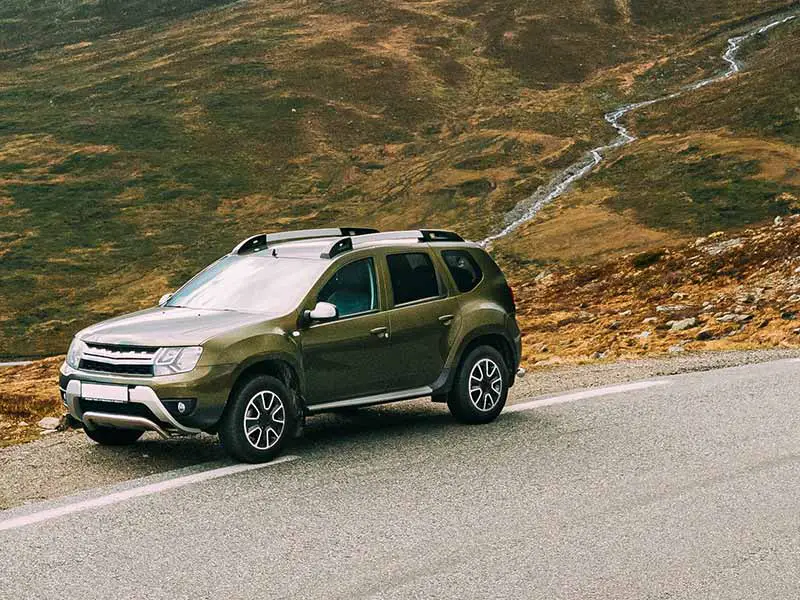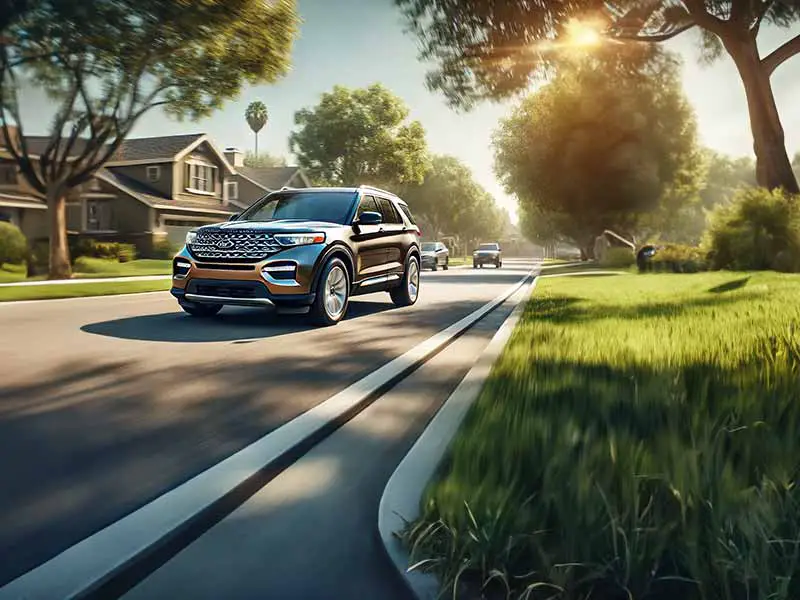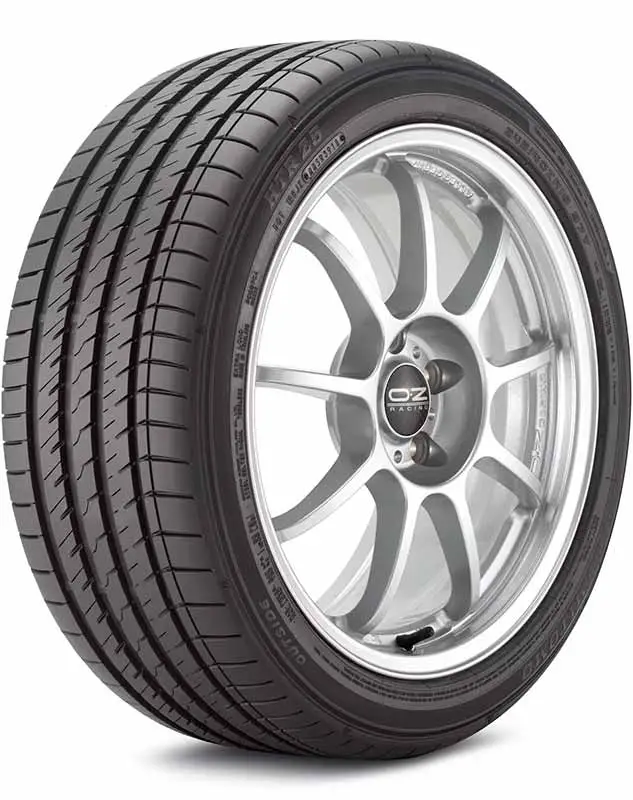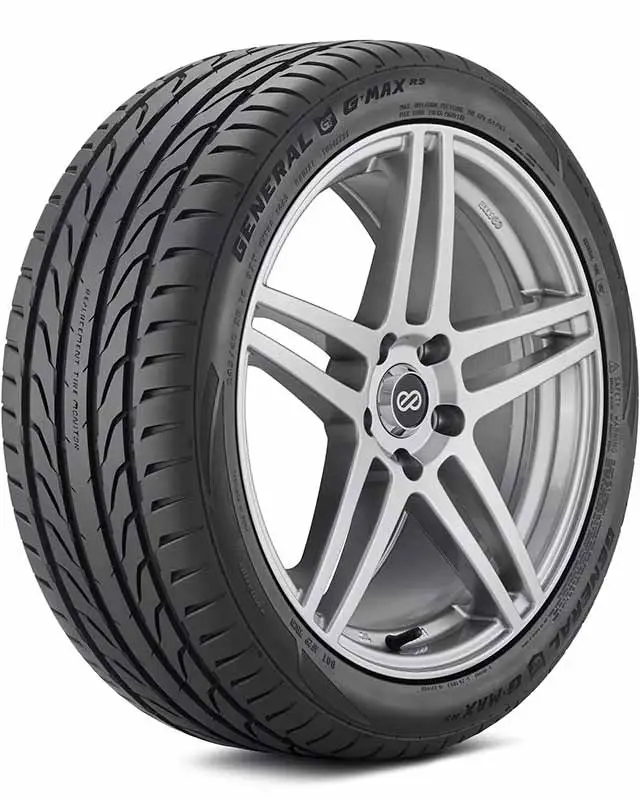Navigating through varied truck tires can be a complex endeavor. Whether you’re a seasoned driver or a new truck owner, understanding the distinctions between HT, MT, AT, and LT tires is pivotal for optimal vehicle performance and safety.
Types Of Truck Tires
HT, MT, AT, and LT denote types of truck tires, each designed for different driving conditions and uses. HT tires are for paved roads, MT for off-road conditions, AT for varied terrains, and LT for vehicles requiring enhanced load-carrying capacities.
In this article, we explore the characteristics and applications of different truck tire types: HT, MT, AT, and LT, guiding you through choosing the right type based on your driving habits and vehicle’s needs.
Let’s take a closer look.
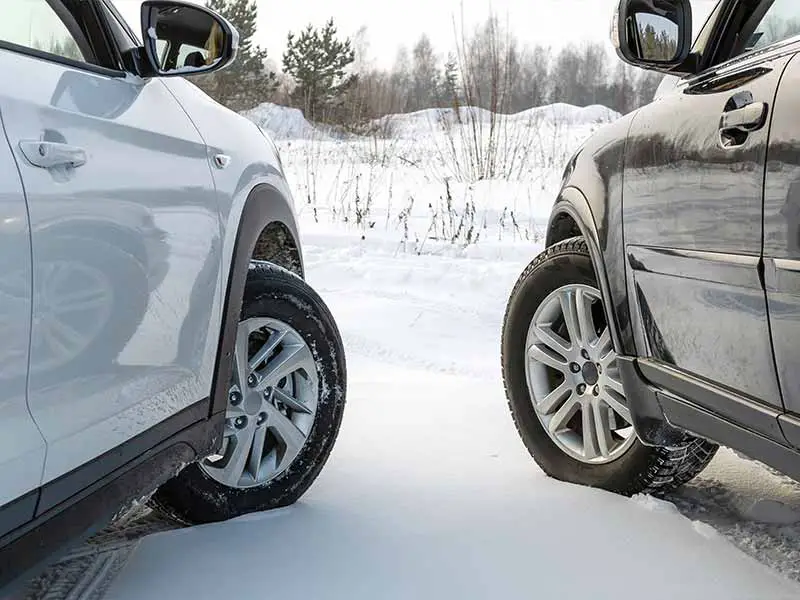
Different Types of Truck Tires
Truck tires are not a one-size-fits-all solution. Various types cater to different needs, from smooth highway driving to adventurous off-road excursions. Understanding the distinct types of truck tires, such as highway terrain tires and mud terrain tires, is pivotal in selecting a tire that aligns with your driving habits and conditions.
Diving into Various Truck Tire Types
Highway Terrain (HT) Tires: The Highway Cruiser
- Application: Primarily designed for paved roads and highways.
- Characteristics: HT or highway tires are known for providing a smooth, quiet ride, and typically offer longer tread life, making them a popular choice for highway driving and long-distance travel.
Mud Terrain (MT) Tires: The Rugged Explorer
- Application: Specifically designed for challenging off-road conditions, especially muddy and loose terrains.
- Characteristics: MT or mud terrain tires feature aggressive tread patterns and robust construction to navigate through challenging terrains, offering superior off-road capabilities.
All Terrain (AT) Tires: The Versatile Adventurer
- Application: Designed to handle a variety of terrains, from paved roads to light off-road conditions.
- Characteristics: AT tires offer a balanced performance, providing adequate comfort on roads and capable traction off-road.
Light Truck (LT) Tires: The Heavy-Duty Worker
- Application: Suitable for trucks that require enhanced load-carrying capacities and durability.
- Characteristics: LT tires feature robust construction and are designed to handle heavier loads and tough tasks.
Catering to Different Needs and Driving Conditions
Smooth Highways and City Streets
- Tire of Choice: Highway Terrain (HT) Tires
- Why: They offer a smooth, quiet ride and are designed to provide optimal performance on paved roads, ensuring comfort and longevity in tread life.
Challenging Off-Road Adventures
- Tire of Choice: Mud Terrain (MT) Tires
- Why: With their aggressive tread patterns and durable construction, MT tires provide the necessary traction and stability in challenging off-road driving conditions.
Versatile Driving Conditions
- Tire of Choice: All Terrain (AT) Tires
- Why: AT tires provide a balanced performance, capable of handling various driving conditions, from smooth highways to light off-roading, offering a blend of comfort and off-road capabilities.
Heavy Load Carrying and Towing
- Tire of Choice: Light Truck (LT) Tires
- Why: LT tires offer enhanced load-carrying capacity and are built to handle heavier loads and tough tasks, ensuring stability and durability in various conditions.

What Are HT Tires?
HT, or Highway Terrain tires, are designed primarily for paved roads and highways. They are engineered to provide a smooth, quiet ride while also offering longevity and reliability in various weather conditions.
Key Characteristics of HT Tires
Smooth and Quiet Ride
- HT tires are crafted to minimize noise, providing a quiet and comfortable driving experience.
- The tread patterns are typically symmetrical and feature smaller blocks, which reduce vibration and noise.
Durability and Longevity
- These tires are built to last, offering long tread life and consistent performance over time.
- They are constructed to resist irregular wear and provide stable handling throughout their lifespan.
All-Season Performance
- HT tires are often all-season, meaning they can handle a variety of weather conditions, including light snow.
- They feature siping (small slits in the tread) that provides additional biting edges for improved traction in wet conditions.
Fuel Efficiency
- Designed with lower rolling resistance, HT tires can contribute to better fuel efficiency compared to more aggressive tire types.
Ideal Use-Cases for HT Tires
Daily Commuting
- For those who primarily drive on paved roads and highways, HT tires offer a comfortable and efficient option.
Long-Distance Travel
- The durability and quiet ride of HT tires make them a suitable choice for long-distance travel and road trips.
Light Load Carrying
- While they are not built for heavy loads like LT tires, HT tires can handle the typical load of passenger vehicles and light SUVs.
Limitations of HT Tires
Off-Road Capabilities
- HT tires are not designed for challenging off-road conditions. Their tread patterns and construction are not suited for mud, rocks, or rugged terrain.
Heavy Load Carrying
- For vehicles that need to carry heavy loads or tow large trailers, LT (Light Truck) tires might be a more suitable option due to their reinforced construction.

What Are LT Tires?
LT, or Light Truck tires, are specifically designed to manage heavier loads and provide stability under various driving conditions. They are commonly used on light trucks, SUVs, and vans that require additional load support.
Key Characteristics of LT Tires
Enhanced Load Carrying Capacity
- LT tires are built with reinforced sidewalls and additional plies to handle heavier loads and towing demands.
- They often have higher load index ratings, indicating their ability to carry more weight.
Robust Construction
- Designed with durability in mind, LT tires feature robust construction to withstand rougher driving conditions and heavier use.
- The tread patterns are often designed to provide stable handling and traction under load.
Versatility in Various Conditions
- LT tires can handle a range of driving conditions, including off-road scenarios, thanks to their sturdy construction and adaptable tread patterns.
- They are available in all-season, all-terrain, and mud-terrain variants to suit different driving needs.
Ideal Use-Cases for LT Tires
Heavy-Duty Tasks
- LT tires are suitable for vehicles that are used for towing trailers, carrying heavy loads, or performing other heavy-duty tasks.
Off-Road Adventures
- While specific off-road capabilities depend on the tire variant (e.g., all-terrain), LT tires can generally handle off-road conditions better than standard passenger tires.
Commercial Use
- Vehicles used for commercial purposes, like delivery vans or work trucks, often benefit from the enhanced load-carrying capacity of LT tires.
Limitations of LT Tires
Ride Comfort
- LT tires might offer a firmer ride compared to passenger tires due to their robust construction and higher inflation pressures.
Fuel Efficiency
- The sturdy build and materials used in LT tires can lead to higher rolling resistance, potentially reducing fuel efficiency.

What Are AT Tires?
All-Terrain (AT) tires are designed to provide balanced performance across a wide range of driving conditions, from paved roads to various off-road environments. They aim to combine the comfort of highway tires with the rugged durability of off-road tires.
Key Characteristics of AT Tires
Versatile Tread Patterns
- AT tires feature tread patterns that are designed to handle various terrains, offering a mix of smooth on-road performance and off-road traction.
- The treads often have larger blocks and more voids than HT tires, providing additional grip in off-road conditions.
Enhanced Durability
- Constructed to withstand the demands of off-road driving, AT tires often have reinforced sidewalls and durable compounds to resist damage from rocks, debris, and rough terrains.
Balanced Performance
- While they might not offer the same smooth ride as HT tires or the rugged off-road capabilities of MT tires, AT tires aim to provide a balanced performance across various driving conditions.
Ideal Use-Cases for AT Tires
Adventurous Driving
- For drivers who enjoy occasional off-road adventures without switching tires, AT tires provide the needed versatility.
Mixed Driving Conditions
- Vehicles that encounter a mix of city, highway, and off-road driving can benefit from the balanced performance of AT tires.
Light to Moderate Off-Roading
- AT tires can handle light to moderate off-road conditions, providing adequate traction on dirt, gravel, and light mud.
Limitations of AT Tires
Extreme Off-Road Conditions
- For challenging and extreme off-road scenarios, Mud Terrain (MT) tires might be a more suitable option due to their aggressive tread patterns and enhanced off-road capabilities.
Optimal On-Road Comfort
- Drivers who primarily navigate paved roads and prioritize ride comfort might find Highway Terrain (HT) tires to be a better fit.
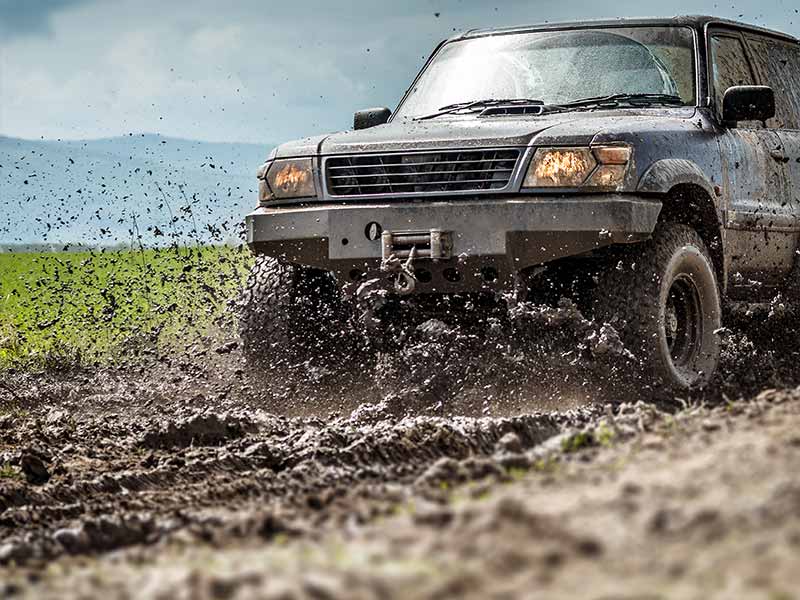
What Are MT Tires?
Mud Terrain (MT) tires are specifically designed to handle rough and muddy off-road conditions. They feature aggressive tread patterns and durable construction to navigate through challenging terrains, providing superior traction and stability.
Key Characteristics of MT Tires
Aggressive Tread Patterns
- MT tires boast large, chunky tread blocks designed to dig into soft, loose surfaces like mud, sand, and snow, providing enhanced grip and stability.
- The wide voids between the tread blocks help to eject mud and debris, preventing them from becoming clogged.
Robust and Durable Construction
- Designed to withstand the rigors of off-road driving, MT tires often feature reinforced sidewalls and durable rubber compounds to resist punctures and abrasions from rocks and rough terrains.
Superior Off-Road Traction
- MT tires are engineered to provide exceptional traction in off-road conditions, ensuring stability and control even in challenging environments.
Ideal Use-Cases for MT Tires
Off-Road Adventures
- MT tires are ideal for off-road enthusiasts who navigate through muddy, sandy, and rocky terrains, ensuring optimal traction and control.
4×4 and Off-Road Vehicles
- Vehicles designed for off-road adventures, such as 4x4s and off-road trucks, can significantly benefit from the enhanced traction and durability of MT tires.
Harsh Weather Conditions
- The aggressive tread patterns of MT tires can also provide superior traction in snowy and slippery conditions, making them suitable for harsh weather driving.
Limitations of MT Tires
On-Road Comfort and Noise
- MT tires can be noisier and offer a harsher ride on paved roads due to their aggressive tread patterns and robust construction.
Reduced Tread Life on Paved Roads
- The aggressive treads of MT tires can wear down more quickly on paved roads compared to other tire types.

Choosing the Right Tires for Your Truck
Selecting the right tires for your truck is pivotal, not just for the vehicle’s performance but also for ensuring safety and reliability on various terrains. In this section, we’ll explore the factors to consider when selecting tires for a truck, ensuring they align with your driving habits, load requirements, and preferred terrains.
Factors to Consider
Understand Your Driving Conditions
- Paved Roads: If you primarily drive on highways and city streets, consider tires that offer a smooth and quiet ride, like HT tires.
- Off-Road Adventures: For frequent off-road excursions, consider tires with robust off-road capabilities, like AT or MT tires.
Evaluate Load and Towing Requirements
- Light Loads: If your truck is primarily used for everyday driving without heavy loads, you might prioritize comfort and on-road performance.
- Heavy Cargo or Towing: For trucks that frequently carry heavy loads or tow trailers, consider LT tires that offer enhanced load-carrying capacities.
Consider Weather and Seasonal Changes
- All-Season Driving: If you drive in varied weather conditions, consider all-season tires that can handle both dry and wet roads, and even light snow.
- Winter Conditions: For driving in heavy snow and icy conditions, consider investing in winter tires that offer enhanced traction in cold and slippery environments.
Making the Right Choice
HT Tires: For the Highway Traveler
- When to Choose: If you primarily drive on paved roads and prioritize fuel efficiency and a quiet ride.
- Key Considerations: Ensure the HT tires have adequate load-carrying capacity for your typical cargo.
LT Tires: For the Heavy Lifter
- When to Choose: If your truck is often used for carrying heavy loads, towing, or traversing rough terrains.
- Key Considerations: Ensure the LT tires align with your truck’s load requirements and offer the durability needed for your driving conditions.
AT Tires: For the Versatile Driver
- When to Choose: If you need balanced performance for both on-road and off-road driving without specializing in extreme conditions.
- Key Considerations: Ensure the AT tires provide adequate traction and stability for your off-road adventures while maintaining on-road comfort.
MT Tires: For the Off-Road Enthusiast
- When to Choose: If you frequently navigate through challenging off-road terrains, especially muddy and loose surfaces.
- Key Considerations: Be mindful of the trade-offs, such as increased road noise and reduced comfort on paved roads.
Quick Tips
- Check Your Manual: Always refer to your vehicle’s manual for recommended tire sizes and types.
- Tire Maintenance: Regardless of the tire type chosen, regular maintenance, such as rotations, balancing, and pressure checks, is crucial for optimal performance and safety.
- Professional Insights: Engage with tire professionals to explore options and ensure your chosen tires are suitable for your truck and driving habits.
Resources
Below are some links you may find helpful when learning about tires
- How to choose the right truck tire – Les Schwab
- How to choose the best tires for my truck – Bridgestone
Final Thoughts
Navigating through HT, MT, AT, and LT tires, we’ve explored their unique terrains and capabilities. From HT tires, ideal for highways, to the off-road adept MT tires, and the versatile AT and robust LT tires, choosing the right type enhances your vehicle’s performance and safety, ensuring every journey is smooth and secure, regardless of the path chosen.
Good luck and happy motoring.
